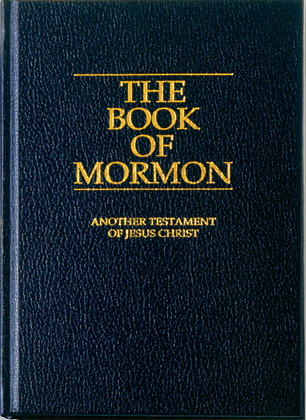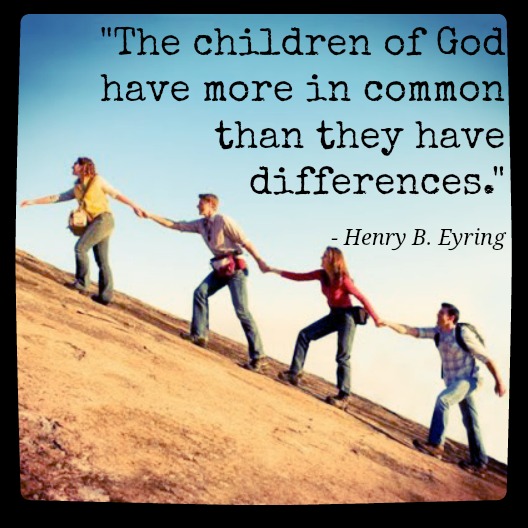Two years after the Mormons arrived in Salt Lake City, an amazing event occurred. The people held a celebration of the United States of America. They held a parade at which flags, the Declaration of Independence, and the Constitution were carried. A giant flagpole was created for a huge flag. Speakers at the celebration that followed encouraged parents to teach their children to be patriotic and to honor the Constitution.
 What made this event so remarkable? The Mormons had been victims of a constitution that lacked what would become the fourteenth amendment. Until that time, the Federal government could not force states to obey the Constitution. Even the Bill of Rights was optional, and so states did not have to honor freedom of religion. Knowing this, Mormons had been forced from their homes, shot, arrested without cause, and even been the victims of an extermination order in Missouri. They had fled to Utah, which was then Mexico, in desperation. During the journey, the same federal government that had failed to protect them asked their men to join the military and fight for the United States—and they did.
What made this event so remarkable? The Mormons had been victims of a constitution that lacked what would become the fourteenth amendment. Until that time, the Federal government could not force states to obey the Constitution. Even the Bill of Rights was optional, and so states did not have to honor freedom of religion. Knowing this, Mormons had been forced from their homes, shot, arrested without cause, and even been the victims of an extermination order in Missouri. They had fled to Utah, which was then Mexico, in desperation. During the journey, the same federal government that had failed to protect them asked their men to join the military and fight for the United States—and they did.
Despite all of this, they wanted to honor the United States of America. They continued to honor it even when the government overthrew their chosen leaders and put in outsiders, and even when it took from women the right to vote and the other rights Utah women, unlike other Americans, enjoyed. When the federal government illegally confiscated church-owned land and tried to prevent Mormons from voting or holding office, they continued to be patriotic.
Why?
 Mormons teach their members to be good citizens. They do not believe in situational ethics and so they don’t base their treatment of others on the way they are treated. They learn that government has value and that if they don’t like their government, they need to work to change it, but they must still be good citizens. One of the thirteen articles of faith used by Mormons to outline their faith says:
Mormons teach their members to be good citizens. They do not believe in situational ethics and so they don’t base their treatment of others on the way they are treated. They learn that government has value and that if they don’t like their government, they need to work to change it, but they must still be good citizens. One of the thirteen articles of faith used by Mormons to outline their faith says:
12 We believe in being subject to kings, presidents, rulers, and magistrates, in obeying, honoring, and sustaining the law.
L. Tom Perry, a Mormon apostle, said:
“As Church members, we live under the banner of many different flags. How important it is that we understand our place and our position in the lands in which we live! We should be familiar with the history, heritage, and laws of the lands that govern us. In those countries that allow us the right to participate in the affairs of government, we should use our free agency and be actively engaged in supporting and defending the principles of truth, right, and freedom” (in Conference Report, Oct. 1987, 87; or Ensign, Nov. 1987, 72).
Mormonism began with a foundation in citizenship because the Book of Mormon teaches that the United States has a special place in religious history. It was organized with a plan for religious freedom in order to bring forth the gospel. As the church expanded into other countries, members were taught that all nations have a place in God’s plan because we have learned through prophecy and revelation that the gospel is to someday be taught in all nations. Members are encouraged to obey laws and be good citizens wherever they might be. This is what God wants them to do—to let their light so shine wherever they are. They are given specific teachings on appropriate citizenship.
“As citizens, Church members are encouraged to participate in political and governmental affairs, including involvement in the political party of their choice. Members are also urged to be actively engaged in worthy causes to improve their communities and make them wholesome places in which to live and rear families.
In accordance with the laws of their respective governments, members are encouraged to register to vote, to study issues and candidates carefully, and to vote for individuals whom they believe will act with integrity and sound judgment. Latter-day Saints have a special obligation to seek out, vote for, and uphold leaders who are honest, good, and wise (see D&C 98:10).” (Handbook 2)
Unlike many churches, however, candidates are not invited to speak and members are not given instruction about specific candidates, regardless of that candidate’s faith. Patriotism, of course, involves more than just voting. As mentioned in the handbook of instructions, members demonstrate patriotism by involving themselves in worthwhile activities that improve their homelands. The Church often helps them by providing humanitarian aid to people of all faiths, not just to Mormons.
Patriotism and good citizenship are hallmarks of the Mormon way of life. They are representative of appropriate civil behavior expected of all of God’s children.
About Terrie Lynn Bittner
The late Terrie Lynn Bittner—beloved wife, mother, grandmother, and friend—was the author of two homeschooling books and numerous articles, including several that appeared in Latter-day Saint magazines. She became a member of the Church at the age of 17 and began sharing her faith online in 1992.



